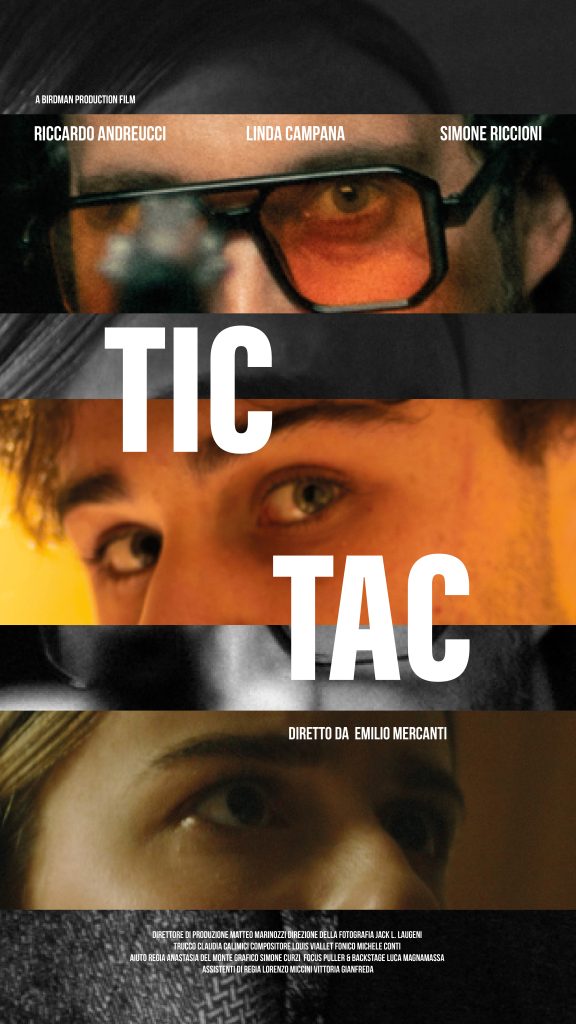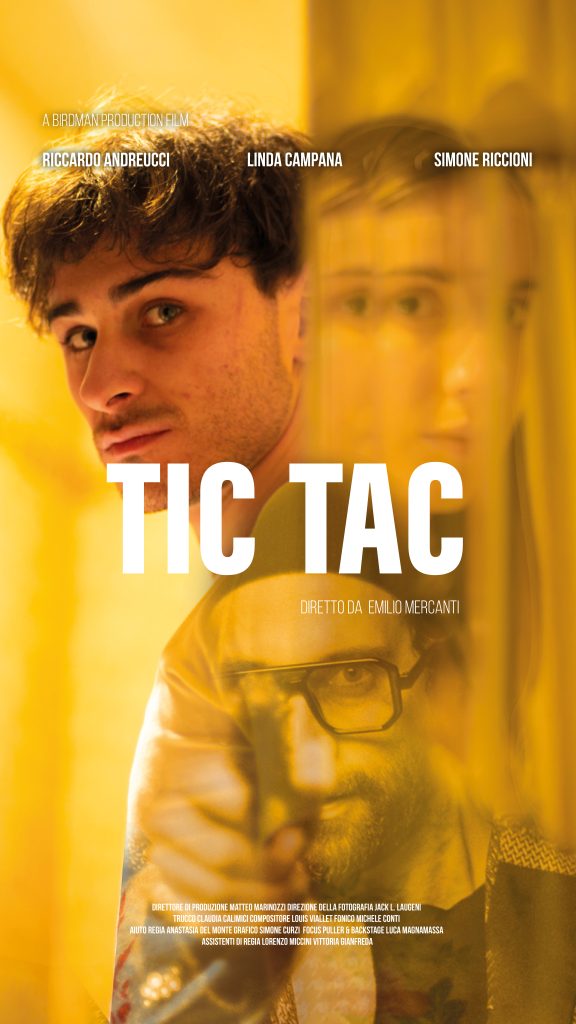
-Who is Emilio Mercanti?
Emilio Mercanti is a young filmmaker born and raised on the coast of the Marche region, in a family of artisans and fishermen. He began studying directing and multimedia audiovisual language in high school, then earned his degree at the Academy of Fine Arts with a specialization in theories and techniques of audiovisual media. He started working at a very young age on commercial and film sets as an assistant director and backstage videographer, eventually becoming assistant director on one of the most successful Italian independent films, Neve. In 2020, he directed his first short film Believe In You, an experimental and silent piece that won various awards across Europe both as Best First Work and Best Short Film. In 2024, he completed TIC TAC, his first narrative short film.
-Do you remember the exact moment you fell in love with cinema?
I remember precisely the moment I fell in love with cinema and I also remember how I nurtured that passion. My very first time at the movies was terrifying. I was five years old and had to leave the screening because I was too scared; that enormous screen had overwhelmed me. A month later, I went back, and during the cave scene in Batman Begins, still frightened, I told my mother she could hold my hand if she was scared (even though I was the one afraid, but I didn’t want to admit it). In that moment, I overcame my fear of the screen and understood that cinema could be a pure form of emotional communication both positive and negative. I was fascinated by the possibility of learning to control that language. During my childhood, every weekend my family and I rented two DVDs, and I spent those years watching every type of film I could get my hands on, trying to absorb as much as possible until I finally started studying film in high school. It’s a passion I’ve had for as long as I can remember, and one I’ve never lost.
-Tell us about your project “TIC TAC”.
TIC TAC is an experimental short film that deals with various themes first and foremost, the breakdown of communication within a couple, and ultimately, the fear of parenthood. I believe this is a subject that deeply concerns younger generations around the world, especially in what Bauman would call our “liquid society.”
Synopsis: Trapped in a daily life that repeats like a jammed mechanism, Phil a methodical and solitary office worker discovers he is caught in a time loop where every choice seems to lead to the same destiny. Each ticking of the clock brings him closer to a secret, a repressed truth, a pain never resolved.
Throughout this endless cycle, Phil must face the experience alongside Mary (his partner) an ethereal and contradictory figure, both a saving presence and an elusive one, and the Daemon, the embodiment of his darkest conscience. In this space suspended between reality and hallucination, between life and dream, Phil must confront himself in order to break the hypnotic rhythm of time.

-Which Director inspires you the most?
The two directors who have influenced me the most are Christopher Nolan and Fritz Lang. Nolan, because the first film I ever watched was one of his, and it shaped my understanding of audiovisual language and how it can be used to communicate both in themes and style. The second is Fritz Lang, for his visionary outlook and his desire to speak both about the masses and to the masses, treating the audience as an integral part of the cinematic experience. His work, especially Metropolis, deals with complex, forward-thinking themes that still resonate deeply today.
-What do you dislike about the world and what would you change?
What I dislike most is the indifference and lack of empathy that often define human interactions. I would change our approach toward others, promoting a culture of listening and understanding where people are willing to give something up for themselves if it benefits someone else. I believe cinema can be a powerful tool to raise awareness and inspire real, positive change.
-How do you imagine cinema in 100 years?
I envision cinema becoming increasingly immersive, where technology will allow for fully sensory experiences. However, I hope that despite all the technological evolution, the heart of cinema will remain rooted in storytelling and in the exploration of the human soul—through personal and innovative ideas.
-What is your impression of WILD FILMMAKER?
WILD FILMMAKER is an innovative platform that celebrates creativity and independence in the world of cinema. I appreciate their commitment to giving voice to emerging directors and for promoting a vision of cinema that goes beyond traditional conventions through a more real and honest communication toward independent filmmakers, truly giving them the chance to be seen and to emerge.

